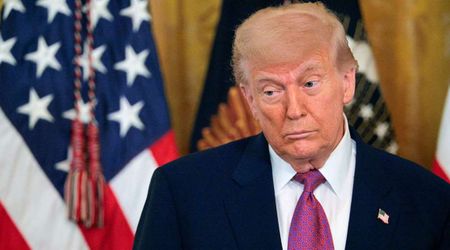Scammers Misuse Healthcare Workers’ Images on TikTok to Market Doubtful Supplements

Many TikTok accounts are exploiting actual life images of doctors, nurses, and dentists to push various supplements and health claims on social media, according to a recent Forbes story. Although the exploitation of medical professionals' identities to market supplements is not entirely new, social media platforms have made it much easier to reach wide audiences with questionable claims.

Mixing health advice with sales pitches
The majority of the time, these photos are used without the medical experts' knowledge or agreement. Usually, they show young, female healthcare professionals with stethoscopes or work badges, dressed in scrubs. Frequently, the subtitles imply that the person has been sacked from a hospital and is now disclosing "secret" information that they were previously prohibited from discussing. Typically, these postings combine sales pitches for supplements with general health advice and they include a link in the bio that directs readers to the products' online stores. The study states that these accounts are free to promote supplements in any way they see suitable, provided that they refrain from using specific terminology regarding diseases or making explicit promises about prevention or treatment.
Influence of TikTok on supplement trends
TikTok has emerged as a major force in bringing virtual goods to life, especially in the supplement sector. The platform has pushed several items into the public eye, including green powders, chlorophyll water, and berberine, which markets itself as a natural substitute for Ozempic. It's crucial to remember that none of these goods can be supported by scientific data. Controlling the content on TikTok is difficult. A representative for TikTok who was contacted by Forbes claims that the platform periodically reviews content and accounts, eliminating any that don't comply with its guidelines. According to TikTok's claims, before products may be listed on TikTok Shop, vendors must submit U.S. food labeling evidence. Forbes discovered this when they reported multiple posts for fraud and false information.

Implications
Using healthcare workers' pictures on TikTok to sell iffy supplements has made a lot of people mad and it's clear we need some big changes in the rules. People want companies to be more open and honest about what they're selling. This situation might make us rethink how we advertise health stuff online and make sure we're doing it in the right way. Hopefully, this mess will lead to better protection for both buyers and sellers, so everyone can trust what they're getting.

Regulatory challenges and legal ramifications
The FDA is in charge of making sure supplement labels are accurate, but the Federal Trade Commission (FTC) is in charge of social media advertising. The FTC has, however, found it difficult to keep up with the growing quantity of social media influencers and the quick speed at which online content is being created. Medical professionals and TikTokers themselves bear the obligation of monitoring and dispelling false information on platforms such as TikTok as agencies are finding it difficult to keep up with the workload. Nevertheless, the research states that professionals whose identities were stolen are unlikely to be successful in their legal actions. If they take legal action such elements, the amount of damages they will receive would probably be small, if they are given anything at all.























